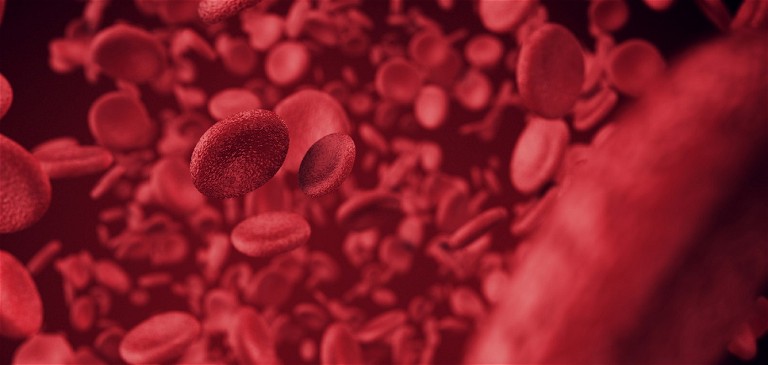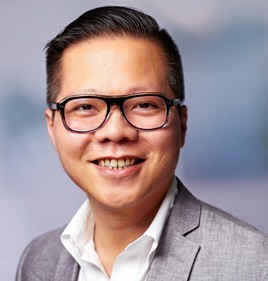ONCOLOGY
A targeted approach to developing targeted blood cancer therapies
Edmond Chan, Senior Director, Therapeutic Area Lead, Haemato-Oncology for Europe, Middle East & Africa (EMEA) at Janssen, explores how precision medicine and targeted solutions can be utilised in the fight against cancer

Over the last decade, it has become increasingly clear just how heterogenous cancer is. Different cancers – whether they be multiple myeloma, chronic lymphocytic leukaemia, or beyond – have different unmet medical and patient needs, not just from each other, but also within their cancer type.
This has reinforced the critical need for a tailored, targeted approach to treatment and management, which have the potential to deliver individualised approaches to care – or, in other words, to target the right patient with the right treatment at the right time. These therapies hold the potential to change the standard of care trajectory.
On the other hand, the targeted nature of these new therapies brings with it an increase in the possible avenues for research and development, as we explore the many different genetic factors that could influence treatment. In the last five to ten years, we have already witnessed a significant growth in cancer research, particularly in the field of haematology. Ultimately, though, every organisation working within our industry has limits to its time and resources. We cannot simultaneously innovate in every treatment route for every cancer type.
There is, therefore, a need for us to take a focused approach to innovating in targeted treatments, directing our efforts to those areas where the challenges are and that we know best, to give us the greatest chance of success. By focusing on areas that harness our expertise and experience, we can deliver meaningful improvements to the lives of those living with cancer.
The power of precision medicine
Precision medicine has been one of the areas that is becoming more and more prominent in our work in haematology. By taking into consideration cytogenetics, disease type, health status, and disease characteristics, it equips clinicians with bespoke treatment options and combinations that are tailored to the individual, allowing for a highly targeted approach.
This is already beginning to deliver successful treatments for those living with blood cancers, but the power of precision medicine is by no means exhausted. There remains significant potential to push the boundaries of current innovation, and we are seeing exciting new technologies in the field emerge all the time.
Of course, by providing a more nuanced approach, precision medicine is accordingly more complex to develop and deliver compared with traditional approaches, as it can involve many stages and stakeholders. Despite this added complexity, my view is that the potential advantages of precision medicine are worth it – and that we can give ourselves the best chance of success by taking a precise focus on developing treatments in certain disease areas where we already possess years of experience, and then apply the learnings in other disease areas in the future.
So where is precision medicine making a meaningful impact for people living with cancer? Chimeric antigen receptor T (CAR-T) cell therapy is one example – a therapy option that holds significant potential for people living with multiple myeloma who have few available treatment options, and are often faced with poor outcomes.1
Despite the advances that have been made in care, relapse is still considered inevitable for those diagnosed with multiple myeloma, and, almost 40% of patients do not reach five-year survival.2Working by harnessing the power of a person’s own immune system to target cancer cells expressing a specific antigen treatment, CAR T cell therapy is a novel and highly personalised treatment. 1 Unsurprisingly, it is a complex process, requiring close collaboration between stakeholders across the industry to deliver it in the most effective way possible. But the need to harness this kind of innovation is clear – so we must keep advancing to provide patients with this additional treatment option, as well as other ‘off-the-shelf’ targeted therapy alternatives such as bispecifics.3
Delivering targeted solutions for patients
We recognise the importance of giving patients an active role and voice in the research and development process, and precision medicine is no different.
Receiving a cancer diagnosis can be overwhelming and frightening, often leaving patients with limited time – time that is impacted by the physical and emotional burden of living with cancer. Moving away from a one-size-fits-all treatment model offers an opportunity to start to try and alleviate this burden.
As well as having the potential to deliver better outcomes for extending life, such targeted therapies may also give people living with cancer time to do the things they enjoy doing. For instance, providing treatments that can be administered more rapidly and increasing the availability of oral treatments or subcutaneous injections versus intravenous formulations, means more flexibility for patients, less time spent in the hospital, and more time to spend doing the things that matter to them.
Realising the potential of targeted therapies to transform quality of life requires putting the patient voice and experience at the heart of treatment development. This can be achieved by working closely with patient organisations at each stage of the clinical trials process, including patient perspectives in health technology assessment decision-making, or providing the forums for people living with cancer to discuss their experiences of the diseases and treatments more broadly.
Change through collaboration
As treatments become more targeted, and lead to a corresponding growth of options based on different mechanisms of action, therapeutic indications, and influencing factors, the amount of information being provided to clinicians grows ever larger as well. The knowledge and expertise required of them, and of researchers working in the field, can also become increasingly specialised. To maximise the benefit to patients of such a targeted approach, we must work in collaboration with these experts from across the world – working towards our common goal of having new, efficacious treatments for cancers with high unmet need.
In other words, precision medicine can only have the impact that we hope it can have if we’re collectively able to translate scientific discovery into clinical practice. Thankfully, we are already seeing examples of this. For instance, the machine learning ledger orchestration for drug discovery (MELLODDY) project brings together academic and industry partners, to collaborate on an machine learning tool that pools insights from data generated during drug discovery programmes across the world.4
This is particularly important for rare diseases, where individual clinical trials have a fixed number of patients involved, and often limited access to a larger patient pool. Projects that use increasingly sophisticated technologies to collate data more broadly, allowing healthcare professionals and researchers to identify trends within a greater population size that can have a direct impact on day-to-day clinical practice, are therefore incredibly useful. Other similar examples of this are the Haematology Outcomes Network in Europe (HONEUR), which is a secure, collaborative platform allowing the combined analysis of datasets in haematological malignancies, and the European Health Data and Evidence Network (EHDEN), another data-sharing system powered by data from more than 100 million records.5,6
Progress is already being made, but there is of course more we can do. Change can only come through collaboration and, with research and development only growing more ambitious and complex, working with the wider oncology and haematology community and utilising exciting new technologies, such as AI and ML, are critical for success.
Targeting better treatments for the future
Precision therapies have potential as a future mainstay of treatment for haematology. As we move away from a one-size-fits-all approach, there is such scope to continue improving cancer therapies – and it is only by taking a targeted approach to developing these therapies, and working with experts across the region, that we can give ourselves the best chance of success. As the pace of advancement in precision medicine continues to accelerate, we will continue in our focused approach, targeting the areas in haematology that we have strong heritage in, and facilitating partnerships with the scientific community and wider oncology industry. The European Haematology Association Congress in June will provide another milestone on this journey, and will also give us further insight into what precision medicine holds in the future.
The last ten years have seen us make incredible progress in understanding cancer heterogeneity. The next ten years offer an opportunity to turn this better understanding into better outcomes for patients – but only if we target this opportunity in the most effective way possible.
References
- Teoh PJ, Chng WJ, CAR T-cell therapy in multiple myeloma: more room for improvement. Blood Cancer Journal 11, 2021
- De Angelis R et al, Survival variations by country and age for lymphoid and myeloid malignancies in Europe 2000-2007: results of EUROCARE-5 population-based study. Eur J Cancer 51: pp2254-68, 2015
- Zhou X et al, Bispecific antibodies: a new era of treatment for multiple myeloma. J Clin Med 9: pp2166, 2020
- Visit: www.melloddy.eu
- Visit: www.portal.honeur.org/home
- Visit: www.ehden.eu

Edmond Chan joined Janssen in 2012 and has led multiple different functions in the organisation, including R&D, local, regional and global Medical Affairs. He currently heads the EMEA Medical Affairs Haematology team, focusing on haematological cancers such as multiple myeloma and chronic lymphocytic leukaemia, and driving patientcentered solutions and treatment in areas of unmet medical need. He is an experienced, UKtrained pharmaceutical physician, specialising in renal medicine, and holds a doctorate in clinical research in solid organ transplantation.